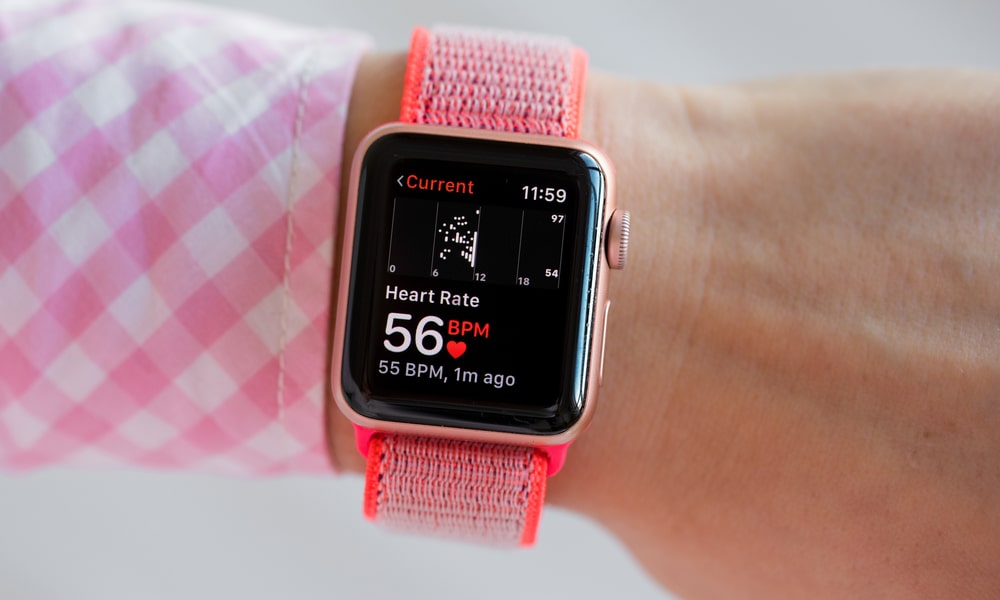The Apple Watch Could Detect Heart Conditions in Young Cancer Patients
 Credit: Kaspars Grinvalds / Shutterstock
Credit: Kaspars Grinvalds / Shutterstock
Toggle Dark Mode
The popularity of the Apple Watch has doctors and medical researchers constantly seeking new ways in which the wearable can be used to improve people’s lives. It’s already proven especially useful for detecting dangerous heart conditions. A recent study looks at how it can help detect problems that often occur among children undergoing cancer therapy.
According to MyHealthyApple, a prominent Australian child health research institute is hoping to validate the use of the Apple Watch electrocardiogram (ECG) feature as a way to less invasively measure a potentially dangerous heart condition in pediatric, adolescent, and young adult patients between the ages of 7 and 18.
While Apple states clearly that its ECG app “is not intended for use by people under 22 years old,” researchers at Australia’s Murdoch Children’s Research Institute (MCRI) believe that it can be helpful for younger users in specific clinical conditions and is undertaking a study to validate that theory.
MCRI is the largest child health research institute in Australia, and it’s considered to be among the top three child health research institutes worldwide when it comes to research quality and impact.
QT Prolongation
The specific area being studied concerns a condition known as QT prolongation, which results in the heart taking longer than normal to recharge between heartbeats. This can be a marker of an increased risk for abnormal heart rhythms and even cardiac arrest.
It’s a condition that’s known to be common among patients undergoing cancer treatment due to the medications and therapies used and the diseases that often accompany those undergoing treatment.
As some studies have already demonstrated that the Apple Watch can accurately measure QT intervals, MCRI researchers hope the technique can be applied to younger cancer patients in a clinical setting.
Currently, patients who may be at risk of QT prolongation are hooked up to a standard 12-lead ECG, a more complicated procedure that also requires the patient to visit a medical facility.
The study aims to determine whether the single-lead Apple Watch ECG can provide the same QT correction (QTc) measurements as those from a more sophisticated medical-grade ECG. The hope is that doctors will be able to “scale routine screening strategies across large populations” and “facilitate ambulatory care” by using the Apple Watch to monitor for QT prolongation.
If successful, this would help improve the quality of life for many children undergoing cancer therapy who are already dealing with enough. Instead of visiting the hospital to have their QTc checked regularly, it could simply be monitored from their Apple Watch.
The Apple Watch ECG feature has already prompted countless individuals to seek medical care for conditions that they otherwise would have missed — and even some that hospital ECGs have failed to detect.
This latest study is yet another example of how researchers are looking for new ways that the simple, single-lead ECG on Apple’s wearable can highlight more subtle heart abnormalities that often fly under the radar.
For example, last month, researchers at The Mayo Clinic announced a study that proved that doctors could get “medically useful information” from Apple’s single-lead watch that’s previously only been available with a full ECG rig. Although there’s still a lot more research to be done, it’s clear the Apple Watch has the ability to transform the face of health care. At the end of the day, it’s not about the iPhone; Tim Cook has said health is what should be Apple’s “greatest contribution to mankind.”







